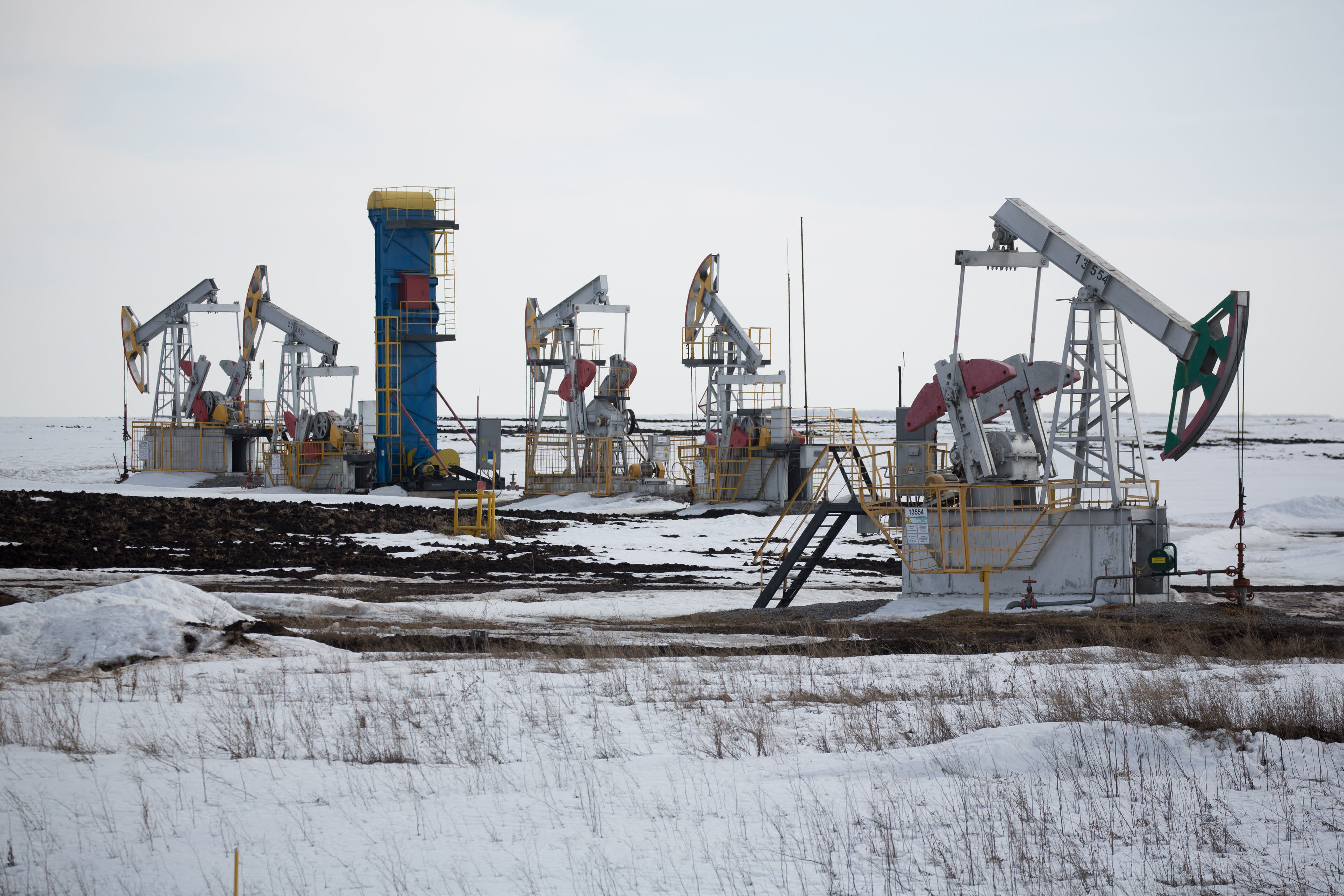
All eyes are on whether Saudi Arabia will raise crude production if Russia’s output significantly falls following European Union oil sanctions.
Andrey Rudakov | Bloomberg | Getty Images
OPEC and its oil-producing allies agreed on Thursday to hike output in July and August by a larger-than-expected amount as Russia’s invasion of Ukraine wreaks havoc on global energy markets.
OPEC+ will increase production by 648,000 barrels per day in both July and August, bringing forward the end of the historic output cuts OPEC+ implemented during the throes of the Covid pandemic.
The group has been slowly returning the nearly 10 million barrels per day it agreed to pull from the market in April 2020. In recent months, production has risen between 400,000 and 432,000 barrels per day each month.
Oil prices reversed early losses and moved higher at 9:45 a.m. on Wall Street. West Texas Intermediate crude futures, the U.S. oil benchmark, added 0.75% to trade at $116.13 per barrel. International benchmark Brent crude was 0.5% higher at $116.90 per barrel.
The decision comes as the world grapples with surging energy prices. Governments, including the Biden administration, have been calling on producers to raise output in an effort to dampen oil’s wild ride.
White House press secretary Karine Jean-Pierre said the administration welcomed OPEC+’s announcement.
“We recognize the role of Saudi Arabia as the chair of OPEC+ and its largest producer in achieving this consensus amongst the group members,” she said in a statement, before adding that the “United States will continue to use all tools at [its] disposal to address energy prices pressures.”
While in theory output will be higher looking forward, OPEC+ has been struggling to meet production quotas. Moreover, the additional barrels slated to hit the market will not make up for the potential loss of more than 1 million barrels per day from Russia as nations around the world ramp up sanctions following the invasion of Ukraine.
EU leaders on Monday agreed to ban 90% of Russian crude by the end of the year as part of the bloc’s sixth sanctions package on Russia since the late February invasion.
In March, crude hit the highest since 2008, and has stayed firmly above $100. The rapid rise is a major contributor to decades-high inflation being seen across economies. On Thursday the national average for a regular gallon of gasoline in the U.S. hit another record high of $4.71.
Oil prices had moved lower earlier in the session following a report from the Financial Times, citing sources, that Saudi Arabia was aware of the risks of a supply shortage and that it is “not in their interests to lose control of oil prices.”
Sources told the FT that Saudi Arabia, OPEC’s de facto leader, has not yet seen genuine shortages in the oil markets.
But that situation could change as global economies reopen amid the pandemic recovery, driving higher demand for crude. China, the world’s largest oil importer, is starting to ease restrictions as daily Covid cases taper off.
“Whilst it’s not an outright promise, Saudi Arabia [has] seemingly thrown the West a bone,” Matt Simpson, market analyst at U.K.-based trading platform City Index, wrote in a note after the news.
“This will be well received by Western leaders given inflation – and inflation expectations – remain eye wateringly high, and central banks try to raise rates at the risk of tipping their economies into a recession,” he added.
OPEC and its allies’ next meeting will be held June 30.
— CNBC’s Thomas Franck contributed reporting.

